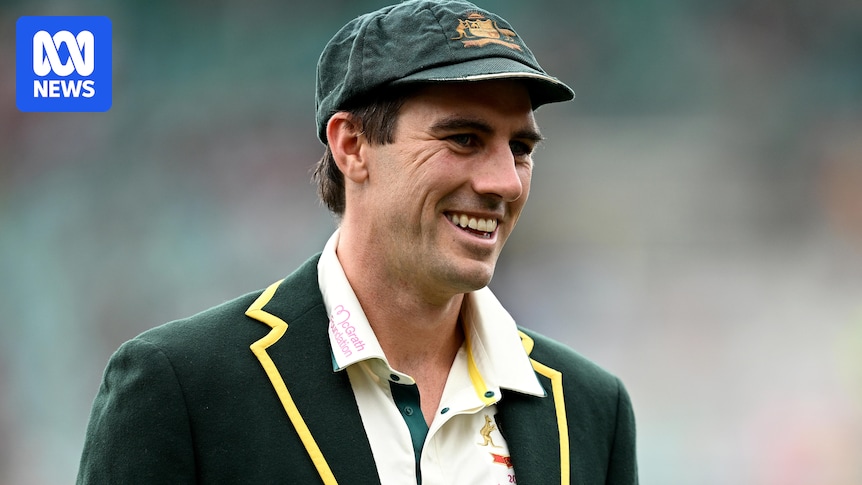Australia’s men’s Test cricket captain has lobbied Prime Minister Anthony Albanese to contribute to a fund to help sporting clubs withstand the effects of climate change.
Cummins, who is leading the initiative called Sport Forever, addressed a summit at Parliament House in Canberra on Monday night after meeting Mr Albanese and Climate Change Minister Chris Bowen.
Cummins called for the government to commit to setting up a $100 million fund over five years to help 1,000 grassroots sporting clubs manage costs and deal with excessive rainfall and heat caused by climate change.
Climate threat to sports codes
He said the money would go towards installing solar panels and batteries, would provide shade and lights to allow play at night and improve ground drainage.
Sport Forever said the funds would save clubs between $2,000 and $10,000 annually.
“If we don’t look after them, we lose more than just sport,” Cummins said on Monday.
“This is about giving clubs a fair go so they can keep the lights on, keep people playing and be part of the shift to cleaner, cheaper energy.”
St Kilda AFLW player and former number one draft pick Nicola Barr also addressed the summit and said her views were influenced by training during the excessive heat of the 2019/20 summer.
“I have clear memories of training during the Black Summer bushfires as ash fell from the sky, and the deep concern I felt for the safety of my community,” she said.
Cummins is the co-founder of Cricket for Climate a non-profit group which aims to raise awareness and educate about the impacts of climate change on the game.
The organisation claims it has helped local clubs install more than 400kW of solar panels, saving over $1million in energy costs.
The group says the installation of solar panels at Victoria’s Shepley Oval in Dandenong is earning the local cricket and football club $10,000 per year.
Cricket is particularly susceptible to climate change with most matches played in the heat of summer days.
A report released earlier this year found that during the 2025 IPL, over half of the 65 matches were played in either conditions classified as either Extreme Caution or Danger on the Heat Index — a measure that combines air temperature and humidity to assess heat-related risk.
English cricketer Joe Root suffered from heat exhaustion during an Ashes test in 2018 when temperatures reached 47.3 degrees Celcius.
Extreme rain has played havoc with local sport in Sydney and Brisbane this winter.

